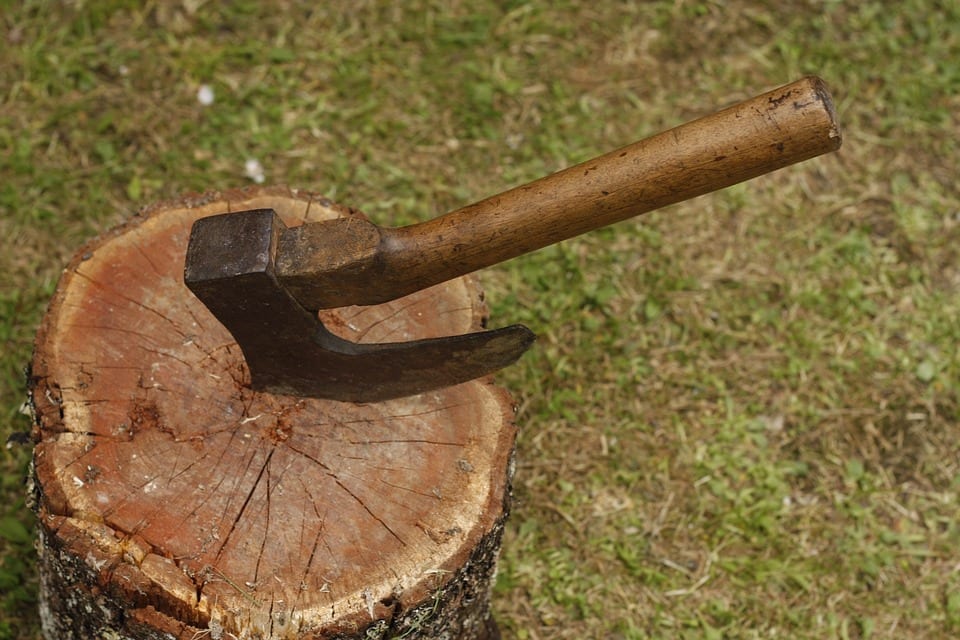The Trump administration imposed a 20% tariff on Canadian lumber, citing unfair government subsidies. Very well, but what about our subsidized exports? Just two days after the tariff decision, Trump signed an executive order amending the Antiquities Act, allowing a review of all national monuments declared since 1996. One thing this would potentially do is open up more national forest land for logging. How is this different from the “unfair government subsidy” of the Canadian lumber industry?
President Trump made news last week by imposing a tariff of up to 24% on Canadian lumber imports.
There’s some history behind this decision. It’s the latest volley in a slow motion trade skirmish that’s been going on since the 1980s. According to Alexia Fernández Campbell at Vox, the American lumber industry regularly gets its dander up over its inability to compete with cheaper, imported Canadian lumber. Grievances are filed with the appropriate authorities, and the government responds by moving to impose a tariff. And then, like clockwork, Canadian and American negotiators have a chat (I’d like to imagine it happening over a cold, imported lager) and a truce is declared, with Canada agreeing to restrict its lumber exports to the United States. Eventually, the wheel turns again – six times now.
What’s different this time? Just like routine votes to increase the ceiling on the national debt became political weapons for a Republican congress under former President Obama, the latest turn of the Canadian lumber cycle fit beautifully into Trump’s sometimey-nationalist political agenda. By playing it up to a public that may not habitually follow U.S./Canadian relations, Trump appears to be standing up for “America First!” It’s a tale, full of sound and fury, signifying not very much, eh?
But not, after all, signifying nothing. There’s a reason that Canadian lumber is said to be artificially cheap. U.S. lumber companies allege that Canadian lumber companies undercut their prices because they’re able to harvest timber from Canada’s huge tracts of forested land that the government makes available at below-market rates. For its part, Canada claims that the lumber companies pay for the timber privileges in kind, by providing other services on public lands, such as preventing forest fires and building roads.
Canada’s beautiful, they’re rich, they’ve got huge tracts of land… (Monty Python clip posted to YouTube by Matthew St. Gelais)
There’s a grain of truth to assertions that government subsidies provide an unfair trade advantage (or distort the “free” market, depending on your ideology). If Canadian lumber merits an import tariff because it’s subsidized by their government, though, let’s consider what else is unfair and which other countries should consider taxing in order to promote their own domestic producers.
Just two days after the tariff decision, Trump signed an executive order amending the Antiquities Act, allowing a review and reconsideration of all national monuments declared since 1996. One thing this would potentially do is open up more national forest land for logging and oil drilling. How is this different from the “unfair government subsidy” of the Canadian lumber industry logging on public land? Perhaps China, where a fifth of our hardwood ends up, should consider our unfair practices and act accordingly if this comes to pass.
The United States is also the largest exporter of agricultural products in the world. Selling our subsidized exports, like corn and soybeans, cheaply in the markets of poor and developing countries (known as “dumping”) routinely destroys the livelihood of their local farmers. Farm subsidies are hugely popular here, and newly minted Agriculture Secretary Sonny Perdue insists that he will defend farm subsidies despite Trump’s proposed cuts to the USDA budget. If we don’t stop subsidizing our farmers, perhaps other countries ought to declare our ag exports unfair, for their own good.
Perhaps the most notable, egregious unfair advantage accrued to Cliven Bundy, who not only grazes his cattle on public land, but has also refused to pay anything for doing so since 1993. Even those ranchers who pay the current cost of $1.87 per cow/calf unit per month to graze their cattle on public land still get an incredible deal.
It’s generally a good idea for people to rely on more local sources for the things they need to live, within their own country at least, and closer to home is even better. This makes communities more resilient in the face of a changing world. However, if we’re going to make a big deal about subsidized Canadian lumber imports undercutting our domestic lumber industry, we need to take a good, long look at our own economic practices and see how fair we’re being to everybody else.
Related: Mexico Scores Trade Sanctions Against the Hard-Talking Trump Administration


Join the conversation!